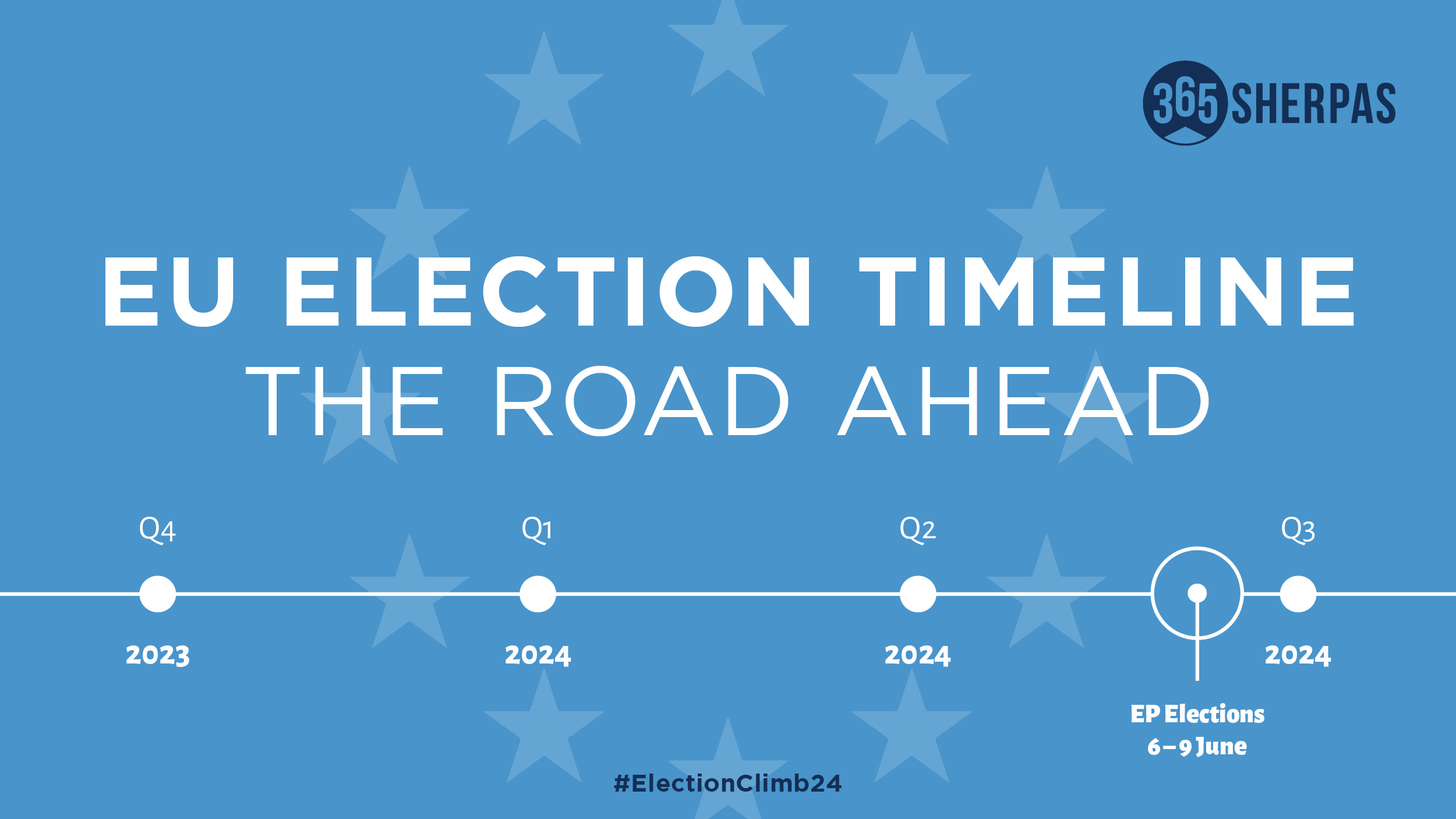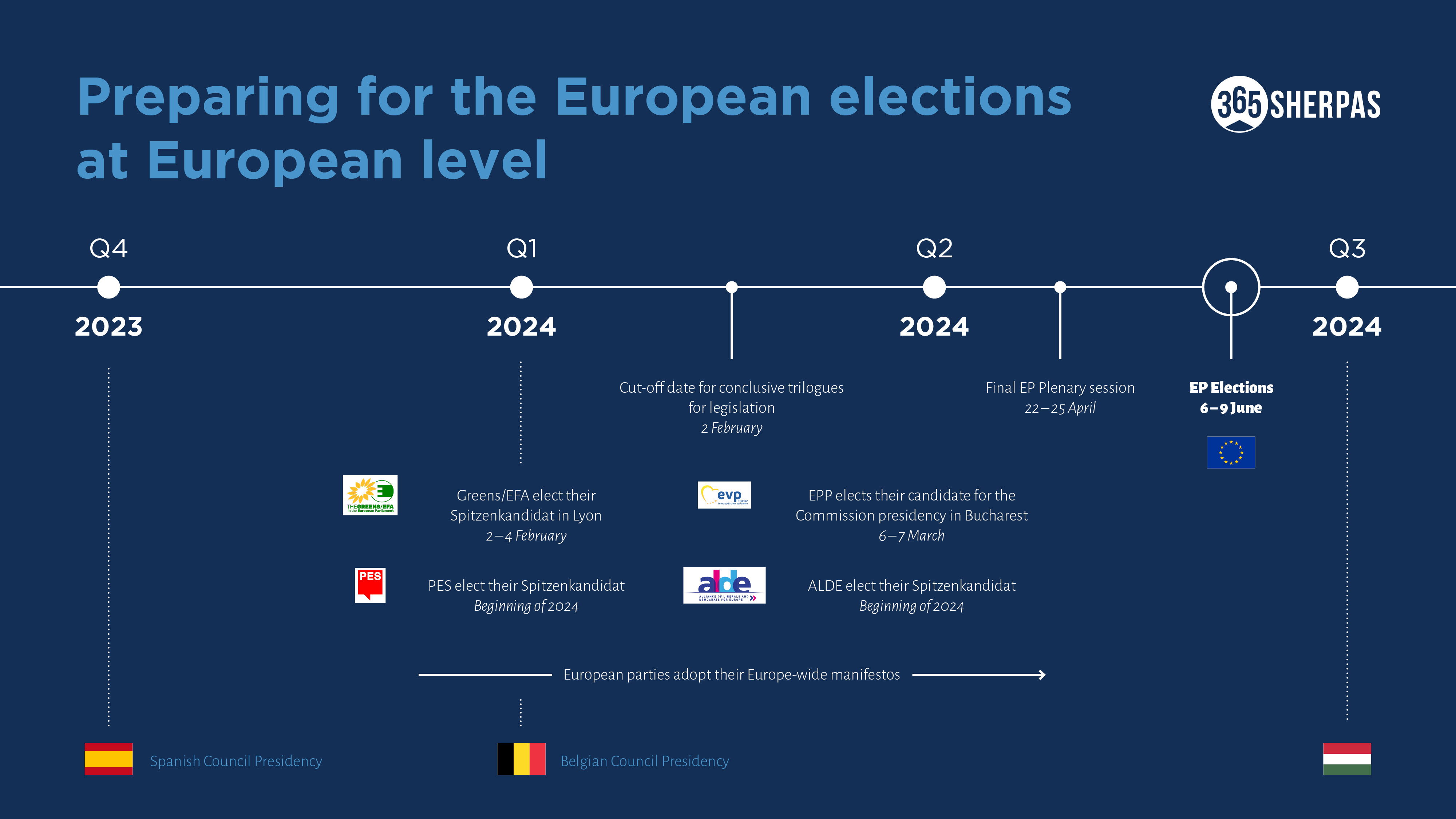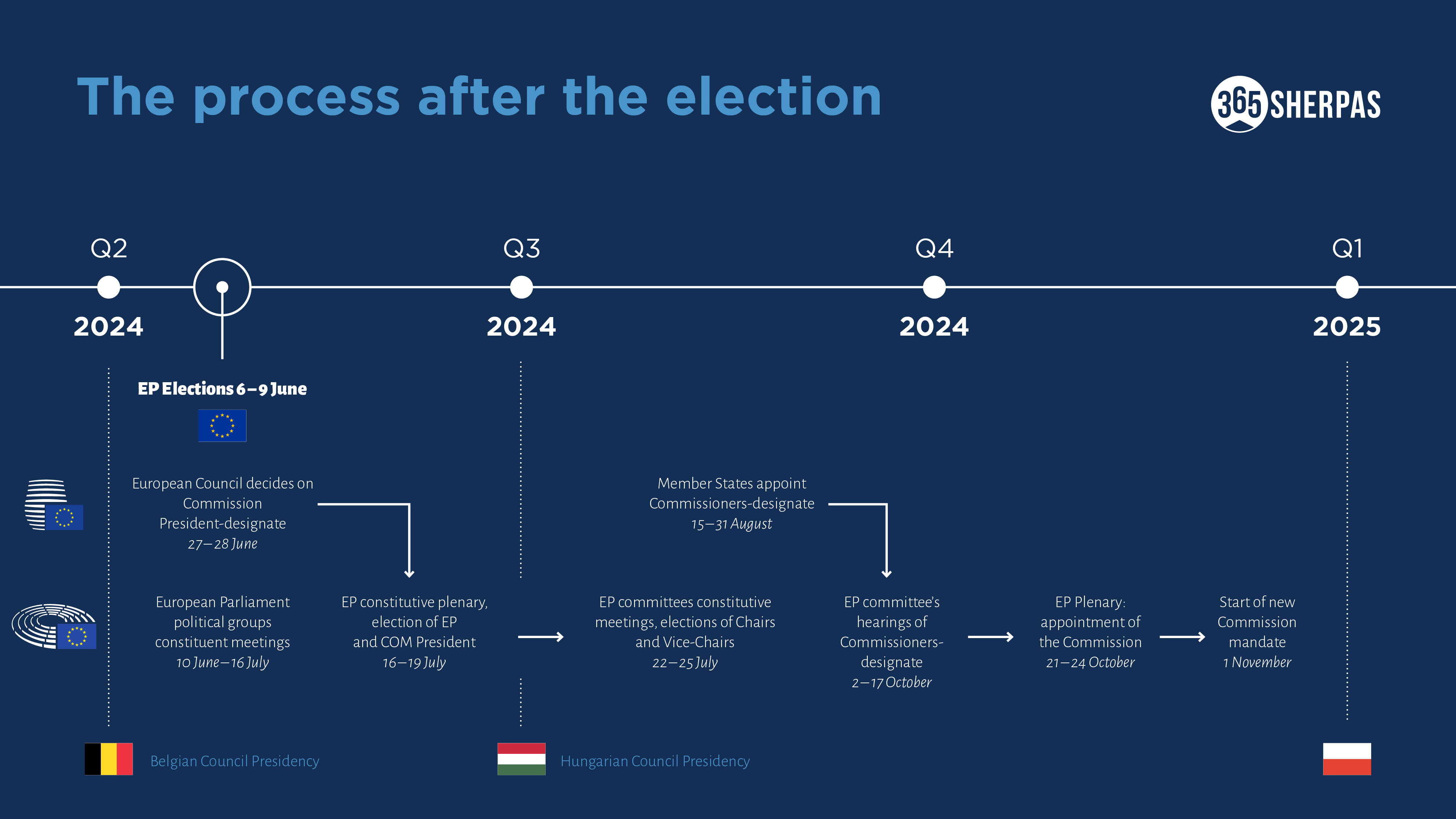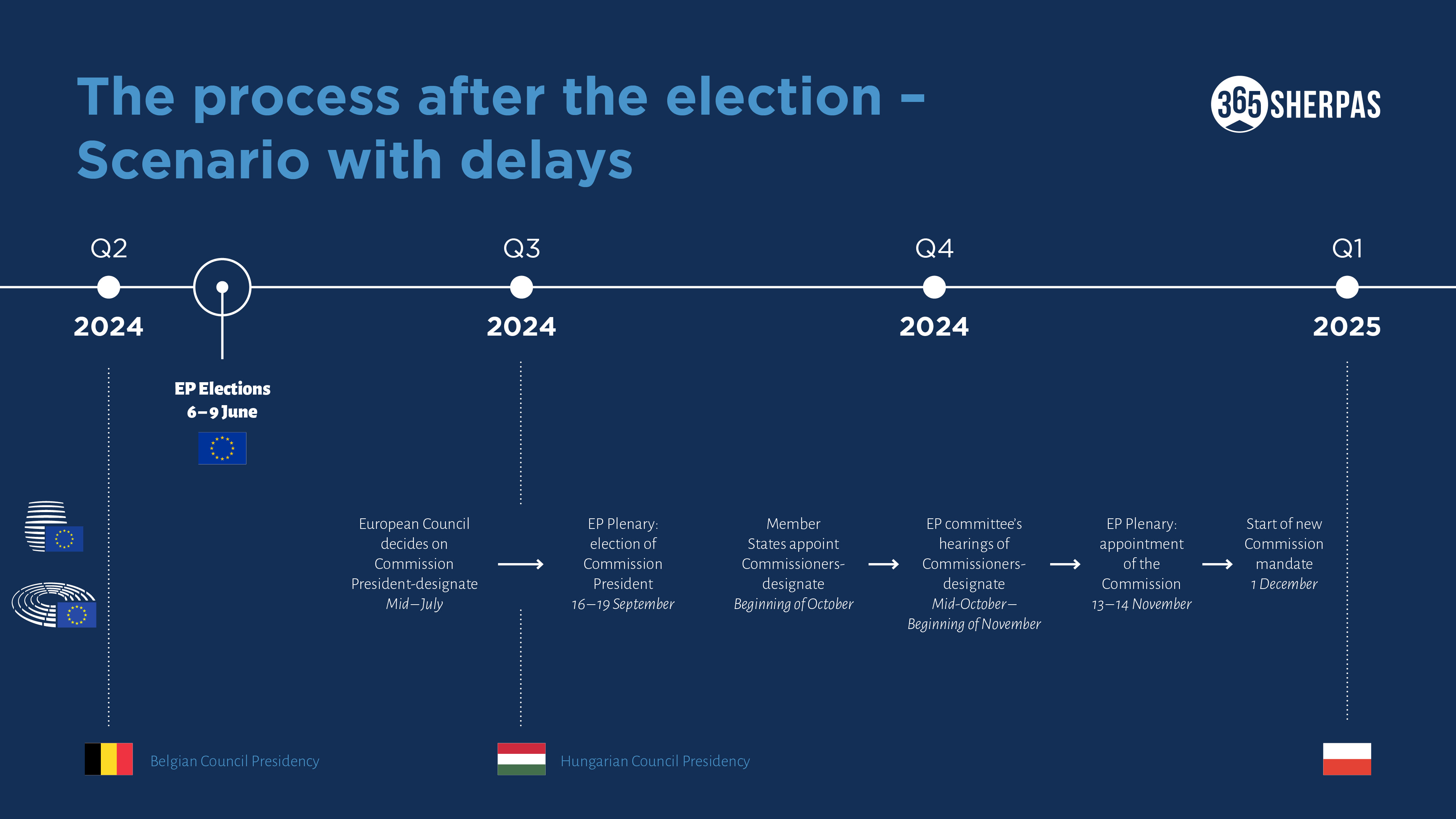With our series #ElectionClimb24, we bring you the latest news and analyses to the European Parliament elections in June 2024. Today we take a closer look at the election timeline: Lead candidates and institutions.
- The candidates
In Germany, the parties are currently drawing up their election programmes and lists and thus also putting forward their lead candidates (‘Spitzenkandidaten’). In general, the German parties run with a nationwide list. The Union parties (CDU/CSU) are an exception, as they continue to work with lists per federal State. For example, Manfred Weber is the Union’s top candidate in Bavaria, Hildegard Bentele in Berlin and Peter Liese in North Rhine-Westphalia. Bündnis 90/Die Grünen were the first to adopt their programme and list at the end of November and have decided on Terry Reintke as their lead candidate. The SPD would like to enter the race again with Katarina Barley and the FDP this time with Agnes Strack-Zimmermann in first place on the list. Both parties will vote on the programme and list at party conferences on 28 January 2024.
The lead candidates of the European parties will also be selected at the beginning of 2024. For instance, the Greens/EFA will elect theirs in Lyon at the beginning of February, the EPP its candidate in Bucharest at the beginning of March. At the same time, the European parties will publish their European manifestos.
- The institutions
Between 6 and 9 June, around 350 million EU citizens entitled to vote will flock to the polling stations. Prior to this, the last plenary session of the current European Parliament will take place in April 2024. From the end of June, the European institutions will begin the process of electing the Presidents of the European Commission and Parliament. First, the European Council will nominate a candidate for the Presidency of the European Commission. As this candidate must be confirmed by an absolute majority in the European Parliament, it is usually necessary for this person to make certain concessions to MEPs from other party families. It is expected that MEPs will confirm the candidate during the constituent plenary session of the European Parliament in mid-July and elect a President of the Parliament from among their ranks. In addition, the candidates for the Commissioners’ posts must be nominated – this is expected to be done by the Member States by the end of August 2024. After hearings in the committees and the final appointment of the College of Commissioners by the Parliament, the new European Commission could officially take office on 1 November 2024.
More details and what the whole scenario would look like with delays can be found on the graphic down here!




